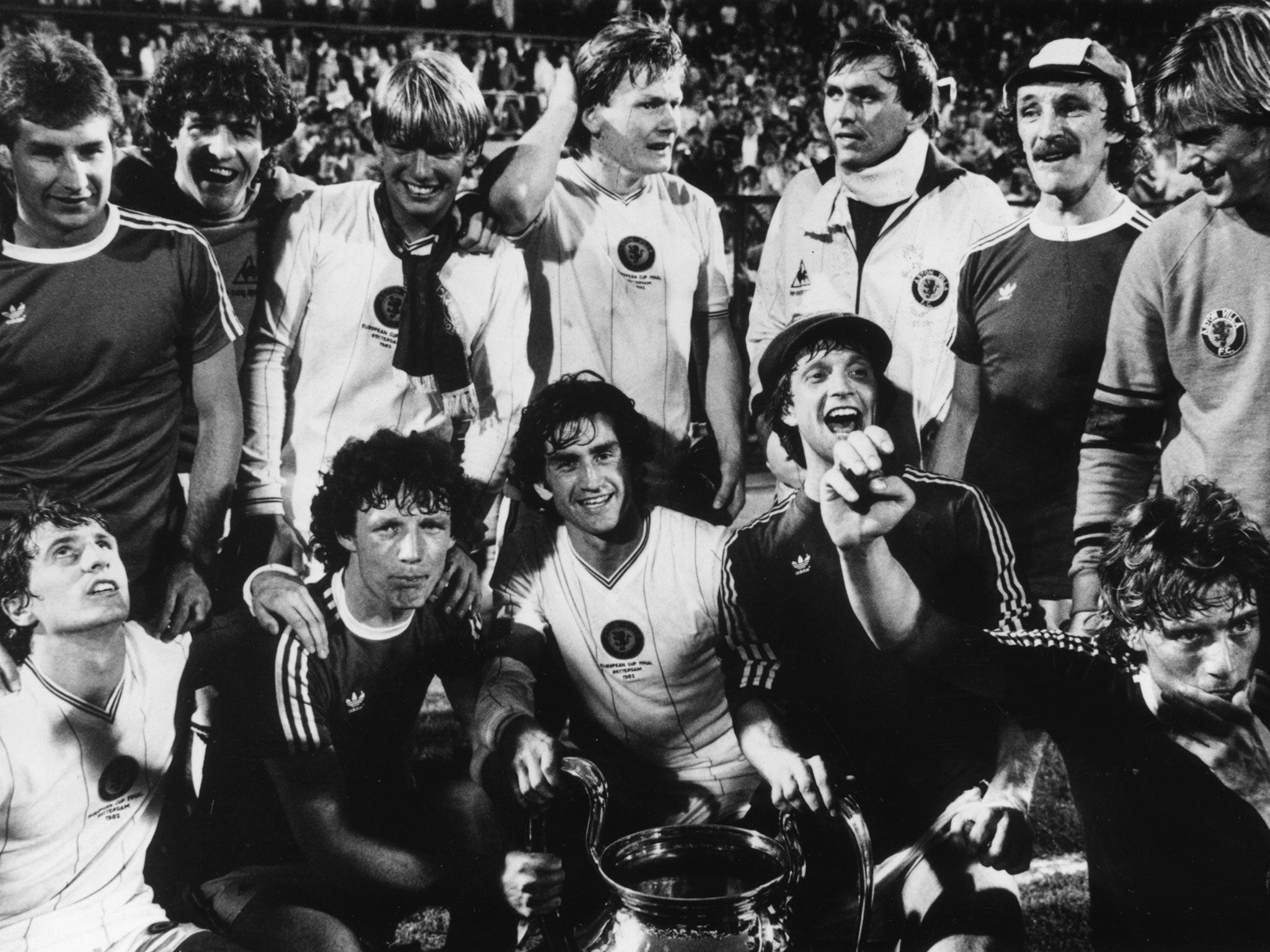History shows that Leicester's dismal domestic form need not play against them in Europe
For all the Champions League’s lofty prestige and spectacle, it has very often been won - or at least properly contested - by sides suffering some of their worst seasons

Your support helps us to tell the story
From reproductive rights to climate change to Big Tech, The Independent is on the ground when the story is developing. Whether it's investigating the financials of Elon Musk's pro-Trump PAC or producing our latest documentary, 'The A Word', which shines a light on the American women fighting for reproductive rights, we know how important it is to parse out the facts from the messaging.
At such a critical moment in US history, we need reporters on the ground. Your donation allows us to keep sending journalists to speak to both sides of the story.
The Independent is trusted by Americans across the entire political spectrum. And unlike many other quality news outlets, we choose not to lock Americans out of our reporting and analysis with paywalls. We believe quality journalism should be available to everyone, paid for by those who can afford it.
Your support makes all the difference.If Leicester City’s build-up to their first ever Champions League knock-out match has been nothing short of dismal - and Sevilla should greatly fancy their chances - it’s worth considering the state that Aston Villa were in at pretty much this exact point 35 years ago.
A squad without a single international cap, they were similarly surprise winners of the 1980-81 English title, but there were still more shocks to come. Not all of them were positive. Villa had dropped to 15th in the table by February of the following season, amid ongoing contract issues between director Doug Ellis and manager Ron Saunders. Just a few weeks before the old European Cup was set to resume after its long winter break, with the side due to play a widely-admired Oleh Blokhin-led Dynamo Kyiv, Saunders walked out.
The players couldn't believe it. The stand-in was chief scout Tony Barton, a figure rarely seen at the training ground except - in the words of striker Gary Shaw - “to drop the post off”.
Given how terrific a team Kyiv were, and how poorly Villa were doing in the league, that should logically have been the moment for the English champions to drop out of Europe. It wasn’t to be. They kept on going, kept on rising. Villa beat Kyiv 2-0 in that quarter-final, before eliminating an equally-admired Anderlecht in the semi-finals, setting up a final with Bayern Munich.
“The cup is ours,” German defender Wolfgang Dremmler said. “Anything else is too fantastic to believe.”
That, however, didn’t dent Villa’s by-now resolute belief in Europe. Something fantastic did happen. Peter Withe scored, and Vila lifted the European Cup. It was all the more fantastic because it came as they finished 11th in the First Division, and thereby became the lowest-placed club to ever claim the trophy. It also summed up a distinctive curiosity in the competition’s history, and offers something for Leicester to derive hope from as they prepare for a Sevilla side who could - for more than a few reasons - be described as the 1982 Kyiv of their day.
Because, for all the Champions League’s lofty prestige and the fundamental idea it was designed to decide the best club on the continent, it has very often been won - or at least properly contested - by sides suffering some of their worst seasons.

Of its 61 winners, eight - a decent 13 per cent given its level - have finished below fourth in the table. That has been the case for seven of its runners-up. This is even before you get to semi-finalists.
The point is clear. There is scope to do something special in the competition even if everything else about your season should invite huge scepticism.
There have already been slight glimpses of it with Leicester this season, with how they followed chaotic league displays with impressively calculated performances against an experienced European team like Porto. Since this has involved an eye-opening spike in the sharpness and application of the side, the main factor would appear to be psychological. The big question is how; how a side can suddenly transform
Carlo Ancelotti’s Milan became masters of over-performing in Europe while under-performing domestically - winning more Champions Leagues than leagues in his seven years at the San Siro - and it was an odd dynamic articulated by Brazilian midfielder Leonard.

“I don’t know what happens to us when we hear the Champions League music,” he said. “We’ll have to ask a psychologist.”
It’s a familiar refrain. Supremely drilled by Saunders in their title-winning season, the Villa players found that the heightened atmosphere and stakes of European nights heightened their application again.
Bayern knew all about this from almost a decade previously. At their peak when winning three successive Bundesligas between 1971 and 1974, the side of Franz Beckenbauer and Gerd Muller were a fading force by 1974-75, and finished 10th that season. That is the second lowest ever position for a European Cup winner after Villa, as they found continental games brought out a muscle memory, and went on to become one of just three clubs to lift the trophy three years in a row.
“When we were playing in Europe, we pulled ourselves together and always raised our level,” Franz Roth has explained. “We stepped up one or two gears.”

That 1975 final was by far the showpiece with the lowest collective league placing, as the Leeds United side Bayern beat 2-0 finished ninth in England.
That team touch on a few other elements relevant to Leicester. Of the seven lowest-placed sides to just reach the final, three have been English. There is therefore some national precedent there to mentally draw on.
There is also one historical worry, however, for Claudio Ranieri.
All of those sides, as well as Bayern 1974-75, changed their manager mid-season. Just as the different circumstances of Europe sharpened their senses again, a different voice just restored their rhythm; shook an inertia that was afflicting the team.
The classic recent case was Chelsea 2012, whose resolve returned on Roberto Di Matteo replacing the hugely unpopular Andre Villas-Boas.

This is the other side of it, too. In the 24 years since the European Cup became the Champions League, sixth-placed Chelsea are actually the lowest-positioned side to reach the final. The modern nature of the competition hasn’t allowed the giant leaps from poor domestic form to supreme continental form in the way it did in 1982 or 1975.
Then again, consider what Villa player Dennis Mortimer said of Villa’s league title win.
“We were well-organised and effective and didn’t have star names. Many of us were overlooked for the national sides… that just wouldn’t happen now.”
Leicester have disproved that.
They could yet discard recent history, of both the Champions League and their season. The competition has shown it isn’t impossible.
It would just require something arguably even more improbable than last season, or any we’ve even seen in Europe.
Join our commenting forum
Join thought-provoking conversations, follow other Independent readers and see their replies
Comments